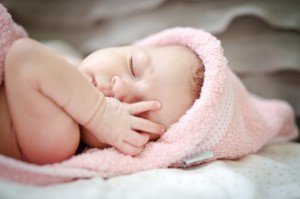 We discuss often here at Epilawg about the importance of having an estate plan in place prior to your death. However, we all know that many die without a will, or intestate, thereby causing state statutes to decide who will receive property and assets of the intestate estate. In other words, the state will decide which family members will inherit your estate. Typically, the family members in line to inherit from an intestate estate are (in order): spouse, children, parents, siblings, nieces and nephews, and so on through a family tree. This process becomes slightly complicated when adoption is involved.
We discuss often here at Epilawg about the importance of having an estate plan in place prior to your death. However, we all know that many die without a will, or intestate, thereby causing state statutes to decide who will receive property and assets of the intestate estate. In other words, the state will decide which family members will inherit your estate. Typically, the family members in line to inherit from an intestate estate are (in order): spouse, children, parents, siblings, nieces and nephews, and so on through a family tree. This process becomes slightly complicated when adoption is involved.
Overview
Pursuant to state statutes, once an adoption is complete, a parent-child relationship is automatically formed between an adoptee and the adoptee’s adoptive parent(s). This means that the adopted person becomes the legal child of the adopting person(s) and that the adopting person(s) becomes the legal parent(s) of the adoptee child with all the rights and duties between them of birth parents and legitimate child. Therefore, typically, except in the situations described below, there is no longer a parent-child relationship between an adoptee and the adoptee’s genetic parents and the adoptee can no longer inherit from his or her genetic parents.
Instead, by virtue of the adoption, the adopted person will inherit from the adoptive parents or their relatives the same as though the adopted person were the natural child of the parents, and in case of the adopted person’s death intestate, adoptive parents and their relatives shall inherit the adopted person’s estate as if the adopted person had been the child’s birth parents and relatives.
Death During Adoption Process
In instances where an individual is in the process of being adopted by a married couple, when one of the spouses dies, the adoptee will be treated as adopted by the deceased spouse if the adoption is subsequently granted to the decedent’s surviving spouse.
Stepchild Adoption
A child of a genetic parent who is in the process of being adopted by a genetic parent’s spouse when the spouse dies will be treated as adopted by the deceased spouse if the genetic parent survives the deceased spouse by 120 hours. This also means that once the step-parent adopts the step-child, there is no longer a parent-child relationship between the adoptee and the other genetic parent unless the other genetic parent was deceased at the time of the child’s adoption and then only for the purpose of the right of the adoptee or a descendant of the adoptee to inherit from or through that other genetic parent.
Situations Where A Parent-Child Relationship Continues to Exist Between Both Genetic Parents and the Adoptee
In an adoption, the parent-child relationship continues to exist for the purpose of the right of the adoptee or a descendant of the adoptee to inherit from the genetic parents if the person adopting the adoptee is:
- a relative of a genetic parent or
- the spouse or surviving spouse of a relative of a genetic parent
The relationship also continues if the individual is adopted by anyone after the death of both genetic parents.
Given all of the above, if you have adopted or are planning to adopt, consult an attorney in your area to determine inheritance consequences for your particular situation.
